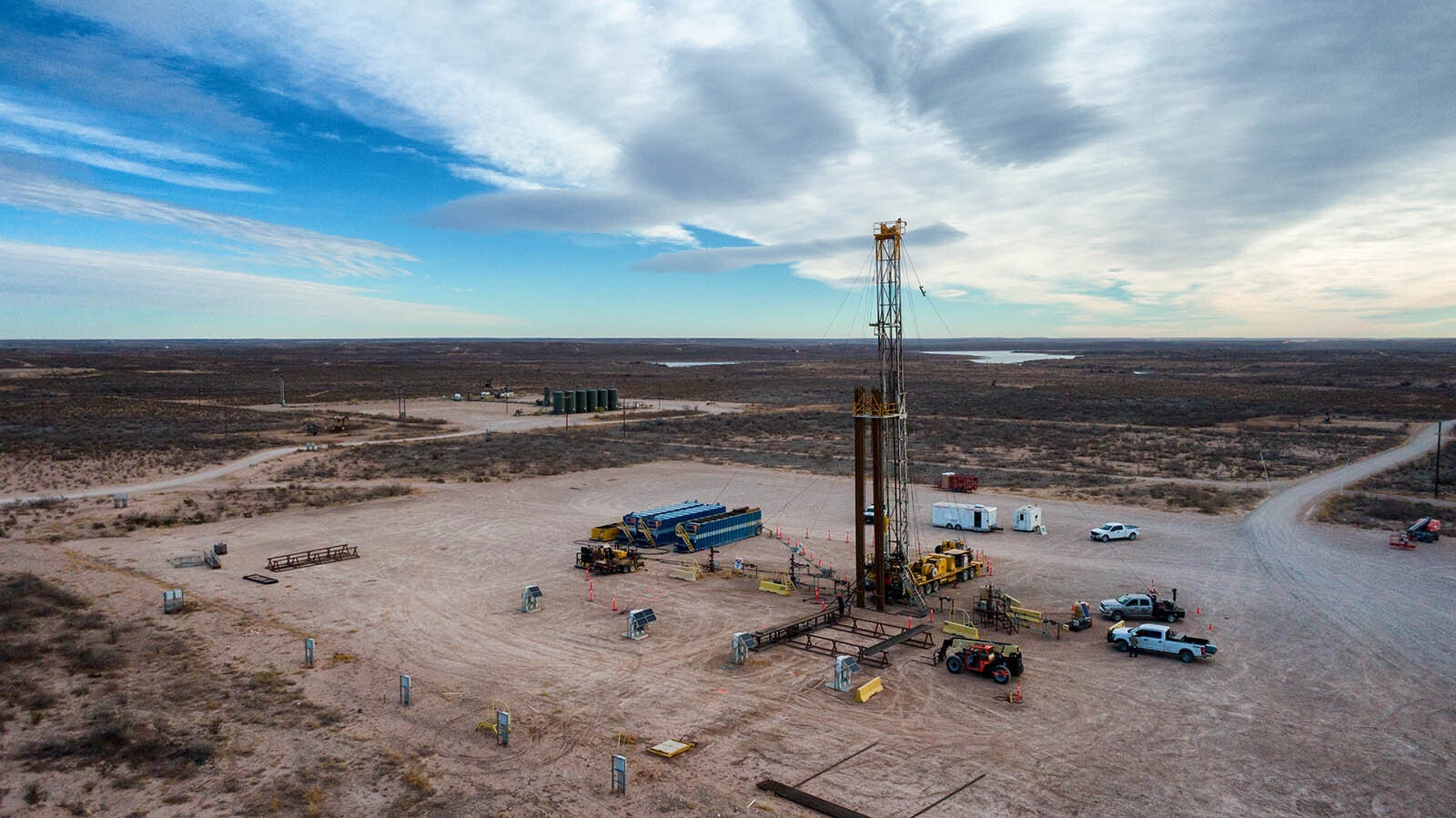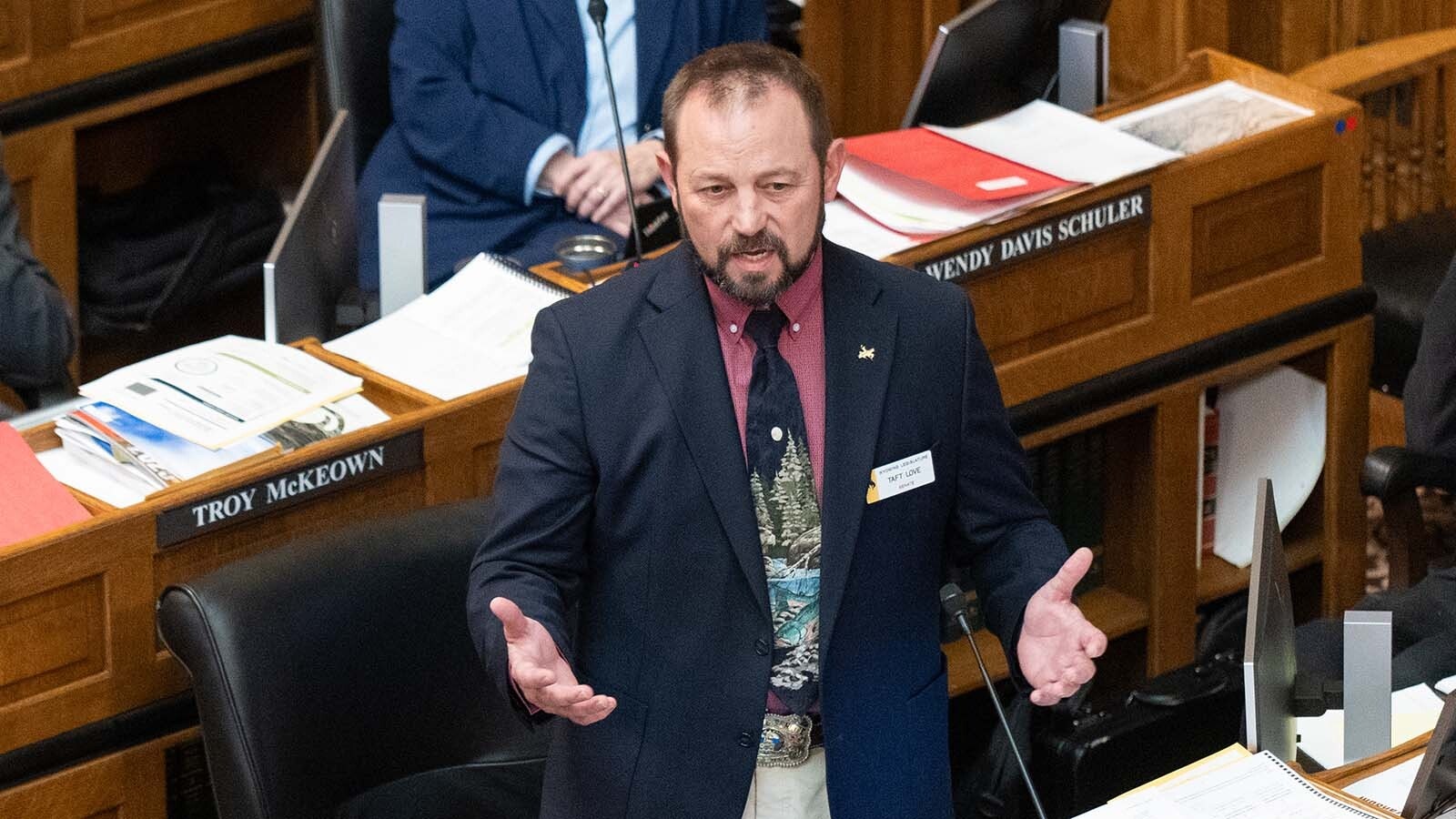Some asset management and exchange-traded funds are responding to “social credit” scores in investing – which have greatly impacted oil, gas, coal, and nuclear financing – with pro-energy and conservative-focused alternatives.
Many large investment firms make decisions on who to do business with based on guidance from the Environment Social Governance (ESG) movement, which rates companies according to political and social criteria, including environmental impact of a company’s operation and its work for reduction of carbon dioxide emissions.
Taking The ‘Woke’ Out Of Investing
“That’s one of the reasons that over the last five to 10 years you’ve seen a lot of capital that’s come out of the oil and gas industry. It’s been more difficult for people to access loans for oil and gas,” Anson Frericks, co-founder and COO of Strive Asset Management, told Cowboy State Daily.
The founders of Strive had a vision of doing business without considering social agendas or based on leaning one political direction or another.
“We believe that makes us a better fiduciary for the vast majority of Americans that do not want to see corporations getting involved in politics,” Frericks said.
Legislative Solutions
These kinds of investment funds may offer a solution to a growing problem for some energy industries.
“As a conservative, I believe markets are always the best place to have the most efficient allocation of people’s resources. And it’s why ESG is such a problem, because it takes away the concept that we’re going to do what’s best for the investors,” said state Sen. Brian Boner, R-Douglas.
“Instead, they’re going to have a politically-motivated ideology attached to their investment strategy as well,” he said.
Last spring, Wyoming lawmakers contemplated a bill to limit the influence of ESG scores in investing. The bill’s ability to address the problem came under scrutiny and it died in committee. Among the issues raised about the bill was the global influence of large investment firms, over which the Wyoming Legislature has no jurisdiction.
Boner was a co-sponsor of the proposal.
“I support legislation to help deal with that issue, if we can. But obviously, the best path forward is going to be meeting that market challenge with other market forces,” he said.
Boner said he’s open to legislative solutions, but the wording of a bill will need to be worked out so that it’s effective at addressing the problem — and for it to gain traction.
“You can’t just have a good intention and expect the bill to pass,” Boner said.
Business And Politics
While Strive remains neutral with respect to political agendas, other investment funds specifically cater to their clients’ politics on both sides of the spectrum.
Point Bridge Capital allows clients to make investments that align with their Republican beliefs. Their MAGA exchange-traded fund (ETF) is made up of stocks within the S&P 500 that support Republican candidates for federal office.
An ETF is a type of pooled investment security that will track a particular sector, commodity or other assets. They can be bought or sold on a stock exchange the same way any stock can.
Point Bridge didn’t respond to a request for comment in time for this article, but the philosophy behind the MAGA ETF is, according to the Point Bridge website, that money matters in politics. So, by supporting companies that support Republican candidates, the firm helps advance political agendas.
The DEMZ ETF works the same way, but it invests in companies supportive of Democratic candidates.
The merger of business and politics may not always be good for performance. Both DEMZ and MAGA are down from where they were six months ago.
Maximizing Value
This is why Frericks set up Strive as a company solely committed to performance. It’s pro-energy, Frericks said, because regardless of any commitment to emissions reductions, energy from fossil fuels is going to be needed.
“If you want to have wind, you want to have solar, you can do that. But you’re not going to be able to meet the current demands and energy, and you’re not going to be able to do it in a credible way for decades to come,” Frericks said.
Among its ETFs is DRLL (pronounced “drill”), which is focused on oil, nuclear, solar, wind, geothermal, natural gas and hydroelectric.
Despite its politically neutral stance, the ETF got sharp criticism from The Sunrise Project, a nonprofit in Australia committed to solving what it calls the “climate crisis.” InvestmentNews reported the company put out a press release referring to DRLL as “climate denialism.”
Sign Of The Times
Frericks said it’s a sign of the times.
Ten years ago if someone started an asset management company that was going to act in the sole interest of its clients, to maximize their financial returns, it wouldn’t have been news.
“People would have said, ‘So what? That’s what an asset management company is supposed to do,’” he said. “But, you know, in the day and age that we live in, if you don’t come with a politicized agenda to save this, to solve that, then all of a sudden you’re seen as a cold-hearted capitalist.”
They also have STRV, which is an ETF with broad market exposure to 500 of the largest publicly traded stocks in the United States, and SHOC, which seeks broad market exposure to the U.S. semiconductor sector.
ESG Opposition
Financial Times reported last year that its social investment movement, dubbed by critics as “woke investing,” has resulted in a 50% decline in oil and gas exploration investments between 2011 and 2021. Energy states are starting to push back.
Louisiana’s treasurer wrote a letter to Blackrock’s CEO stating that ESG would “destroy” the state’s economy, and so Louisiana would divest itself of nearly $800 million worth of Blackrock investments.
The Bank of the West announced in 2018 that it would adopt ESG values, which prompted a round of criticism from then-Sens. Mike Enzi and John Barrasso. Then-treasurer Mark Gordon promised to divest Wyoming of any funds with the bank.
Bank of the West still maintains a commitment to not do business with oil companies engaged in hydraulic fracturing or coal-fired electrical generation.
“Since 2017, we have not financed any new coal-fired power plant projects and we also do not finance coal-fired power plants that are not actively involved in the transition to sustainable energy production,” the bank states on its website.
Bank of the West did not respond to requests for comment on this article.





